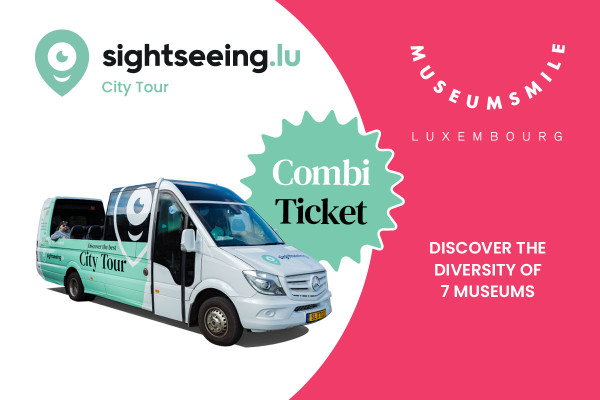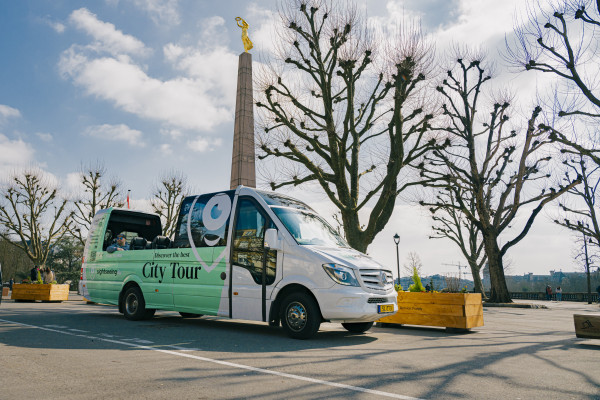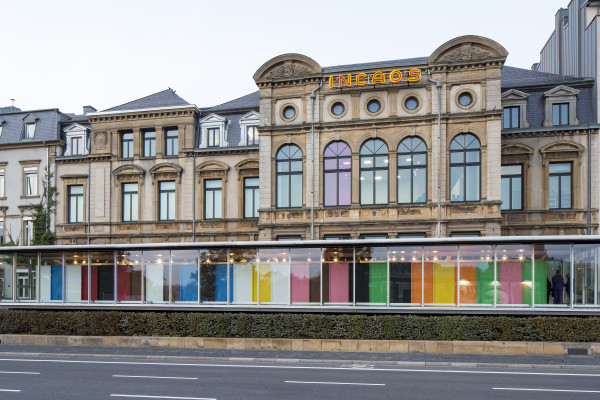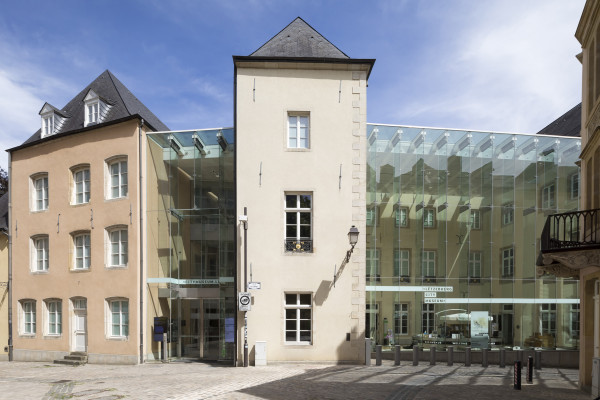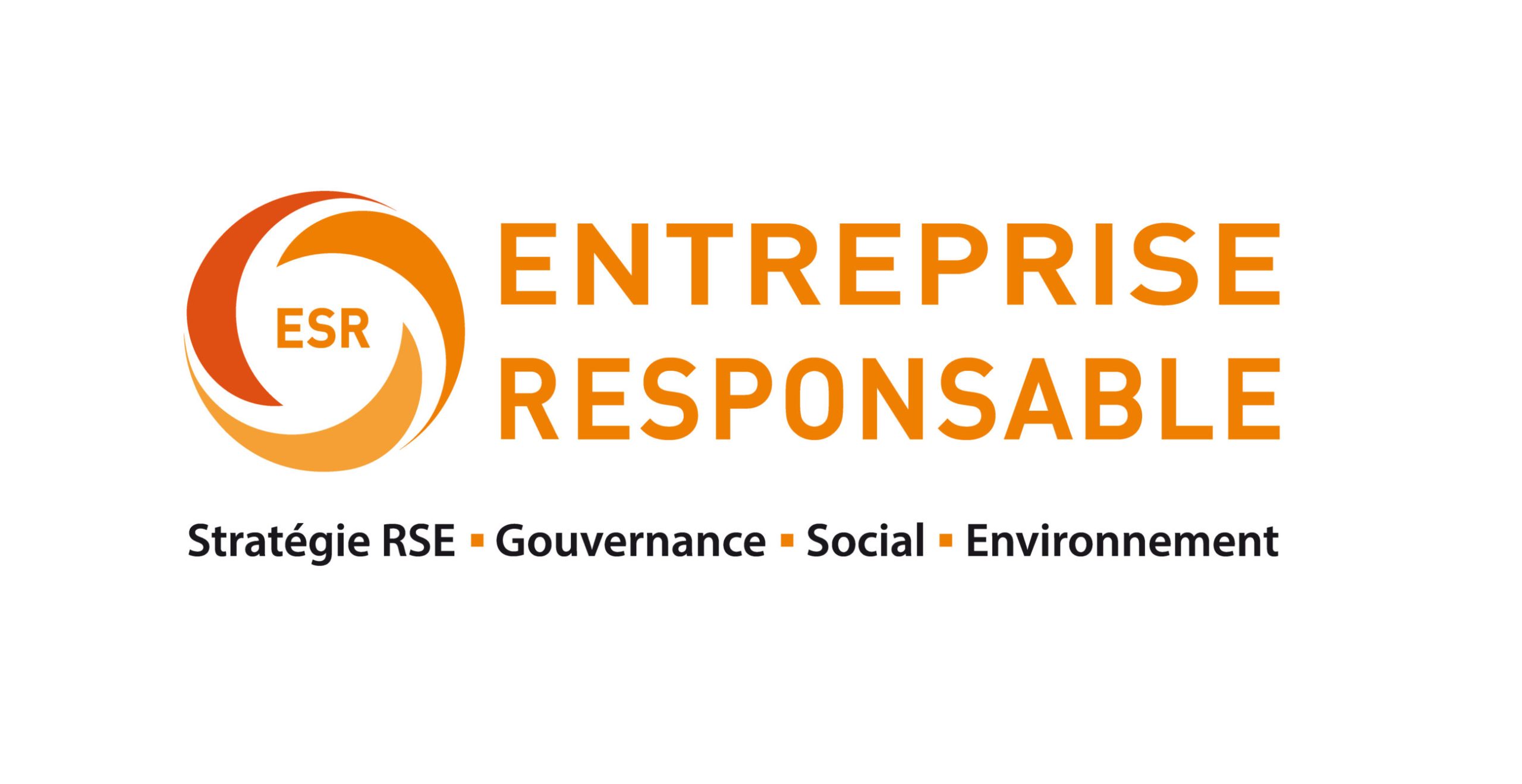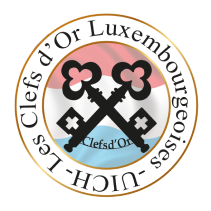Luxemburg City Bus Tour & 7 Museen Pass
Kombi-Ticket: Stadtbus-Tour & Museumspass
Ticket-Kombi: Stadtrundfahrt & Pass 7 musées de la ville
Besichtigungsangebot
from EUR 18
Treffpunkt
routing pdf
Wetter
Wetter
Meteo

Details zur Reise
Dauer
48 Stunden
Sprachen
Niederländisch
Englisch
Französisch
Deutsch
Russisch
Spanisch
Standort
BUSHALTESTELLE
Highlights
- Bewundern Sie die schönsten Wahrzeichen der Hauptstadt
- Eintritt in 7 Museen der Stadt Luxemburg
- Rundgang durch die Oberstadt und den Stadtteil Kirchberg
- Bewundern Sie die schönsten Wahrzeichen der Hauptstadt
- Eintritt in 7 Museen der Stadt Luxemburg
- Rundgang durch die Oberstadt und Stadtteil Kirchberg
- Bewundern Sie die schönsten Sehenswürdigkeiten der Hauptstadt
- Eintritt in 7 Museen der Stadt Luxemburg
- Visite de la Ville Haute et du quartier Kirchberg
Beschreibung
Nutzen Sie dieses außergewöhnliche Kombi-Angebot und genießen Sie eine Fahrt mit dem Doppeldeckerbus der Luxembourg City Line und entdecken Sie zusätzlich die Vielfalt der 7 Museen der Stadt Luxemburg mit Ihrem exklusiven Museumspass.
Profitieren Sie von diesem außergewöhnlichen Kombiangebot und machen Sie eine Tour im Linienbus - der City Line - und entdecken Sie darüber hinaus die Vielfalt der 7 Museen der luxemburgischen Hauptstadt mit dem exklusiven "Pass Musées".
Nutzen Sie dieses außergewöhnliche Kombi-Angebot und genießen Sie eine Fahrt mit dem Doppeldeckerbus der Luxembourg City Line und entdecken Sie zusätzlich die Vielfalt der 7 Museen der Stadt Luxemburg mit Ihrem exklusiven Museumspass.
Übersicht
was enthalten ist
- 48-Stunden-Ticket
- Audioguide in 7 Sprachen
- Kostenlose Kopfhörer
- Eintrittskarte für die 7 Museen der Hauptstadt
was ist inbegriffen
- 48-Stunden-Ticket
- Audioguide in 7 Sprachen (Luxemburgisch, Französisch, Deutsch, Englisch, Niederländisch)
- Kopfhörer
- Eintritt in 7 Museen
ce ui est inclu
- Valable 48 heures
- Audioguide in 7 Sprachen (Luxemburgisch, Französisch, Deutsch, Englisch, Niederländisch)
- Kostenlose Ecouteurs
- Zutritt zu den 7 Museen der Hauptstadt
Vollständige Beschreibung
Mit diesem exklusiven Kombi-Ticket können Sie eine Sightseeing-Tour mit der City Line genießen und die 7 Museen der Stadt besuchen. Da das Ticket 48 Stunden lang gültig ist, können Sie Ihre Museumsbesuche nach Belieben auf zwei Tage aufteilen. Es müssen jedoch zwei aufeinanderfolgende Tage in der gleichen Woche sein, in der das Ticket gekauft wurde.
Der Audioguide ist in 7 Sprachen verfügbar: Luxemburgisch, Deutsch, Englisch, Französisch, Niederländisch, Spanisch und Russisch.
Hier sind die 7 Museen des Vereins "d'Stater Muséeën"
1. Villa Vauban - Musée d'art de la Ville de Luxembourg (dienstags geschlossen)
Die bürgerliche Villa aus dem 19. Jahrhundert mit ihrem modernen Anbau liegt im Herzen der Stadt, inmitten eines historischen Parks, der zum Entspannen einlädt. Die in der Villa Vauban organisierten Ausstellungen stützen sich auf Sammlungen, die hauptsächlich aus holländischen Werken aus dem 17. Jahrhundert und französischen Historien- und Landschaftsgemälden aus dem 19. Das Museum bevorzugt variable Ausstellungsformate, die es ermöglichen, die Werke aus verschiedenen Blickwinkeln zu betrachten. Zu den Wechselausstellungen gehören Leihgaben aus bedeutenden internationalen Sammlungen. Ein abwechslungsreiches Programm erwartet den Besucher.
2. Casino Luxembourg - Forum d'art contemporain (dienstags geschlossen)
Casino Luxembourg - Forum d'art contemporain, die wichtigste Institution für zeitgenössische Kunst in Luxemburg, widmet sich ausschließlich dem zeitgenössischen Schaffen. Das Kunstzentrum veranstaltet Ausstellungen mit einem internationalen Programm, an dem hauptsächlich Künstler der jüngeren Generation teilnehmen. Darüber hinaus beherbergt es eine Bibliothek und einen Lesesaal (InfoLab), eine Buchhandlung und einen BlackBox-Projektionsraum, in dem Videos von Künstlern gezeigt werden. Neben den Ausstellungen sorgt ein umfangreiches Programm von Vorträgen, Meisterklassen und anderen Begegnungen für den direkten Kontakt zwischen den Künstlern und dem Publikum, der für das Verständnis der heutigen Kunst unerlässlich ist.
3. Stadtmuseum Lëtzebuerg (montags geschlossen)
Das Museum befindet sich im Herzen der Altstadt und ist in einem restaurierten Komplex historischer Häuser untergebracht. Auf drei Ebenen, die teilweise in den Fels gehauen sind, entdecken die Besucher die Geschichte der Stadt anhand von Originalobjekten und topografischen Rekonstruktionen sowie einer mobilen Anwendung. In den beiden oberen Stockwerken finden regelmäßig Wechselausstellungen statt.
4. MNHA - Musée national d'histoire et d'art(montags geschlossen)
In seinem 2002 eingeweihten Hauptgebäude und drei 2015 renovierten alten Stadthäusern bietet das Nationalmuseum für Geschichte und Kunst mehr als 6.000 m2 Ausstellungsfläche zur Präsentation seiner enzyklopädischen Sammlungen.
5. MNHN - Musée national d'histoire naturelle 'Natur Musée' (montags geschlossen)
Die Dauerausstellungen spiegeln den aktuellen Stand der naturkundlichen Forschung im Allgemeinen und die Sammlungen des Museums im Besonderen wider und bieten eine globale Perspektive auf aktuelle Themen wie Evolution und biologische Vielfalt. Die neue Anordnung ermöglicht eine bessere Darstellung der Vielfalt der Sammlungen und regt zu einem neuen Blick auf die Natur, ihre Geschichte und ihre Erforschung an. Die Aufgabe des "natur musée" besteht darin, das Umweltbewusstsein zu schärfen und zur Erhaltung des Naturerbes beizutragen. Die Ausstellungen dienen als direkte Schnittstelle zwischen dem Publikum und den Akteuren der wissenschaftlichen Produktion im Museum, wobei die Aufteilung der Themen nur noch sehr frei den wissenschaftlichen Disziplinen folgt. Die Sammlungen des Nationalen Naturkundemuseums spiegeln mehr als 160 Jahre Geschichte des Instituts und vor allem die Dynamik und das Engagement seiner Kuratoren und ihrer Mitarbeiter wider. Die Entwicklung der Sammlungen lässt sich rekonstruieren, indem man die verschiedenen, vor über 160 Jahren erstellten Inventare mit dem aktuellen Inhalt der Sammlungen vergleicht. Folgende Attribute kennzeichnen die aktuelle Sammlung: regional, wissenschaftlich, kulturell, pädagogisch, ästhetisch und historisch.
6. Musée Dräi Eechelen (montags geschlossen)
Die restaurierten Überreste des 1732-33 erbauten Forts Thungen sind ein außergewöhnliches historisches Wahrzeichen und beherbergen seit 2012 das Museum Drai Eechelen - Festung, Geschichte, Identitäten. Der Rundgang durch die Kasematten dokumentiert die Geschichte der Festung und ihre Bedeutung für die territoriale Entwicklung des Landes und seine Identität. Im Mittelpunkt steht der architektonische Komplex des historischen Gebäudes selbst, der ein spektakuläres Netz von unterirdischen Tunneln umfasst, die sich noch in einem Zustand befinden, der dem des letzten Umbaus von 1836/37 entspricht.
7. Mudam Luxembourg - Musée d'art moderne Grand-Duc Jean (dienstags geschlossen)
Das Mudam Luxembourg - Musée d'Art Moderne Grand-Duc Jean wurde 2006 in einem vom renommierten chinesisch-amerikanischen Architekten Ieoh Ming Pei entworfenen Gebäude im Park Draï Eechelen mit Blick auf die historische Altstadt von Luxemburg eröffnet. Mit seiner Sammlung, seinen Ausstellungen, Programmen und Partnerschaften möchte das Mudam Luxembourg seinen Auftrag erfüllen, die relevanteste Kunst unserer Zeit zu präsentieren.
Beschreibung detaillee
Mit diesem Kombiticket können Sie eine touristische Reise mit dem City Line-Bus unternehmen und die 7 Museen der Stadt Luxemburg in Ihrem Namen besuchen. Da das Ticket 48 Stunden gültig ist, können Sie Ihre Museumsbesuche auf zwei Tage aufteilen, wie Sie es wünschen, allerdings müssen es zwei zusammenhängende Tage in der gleichen Woche sein, in der das Ticket erworben wurde.
Les sept musées du groupement " d'Stater Muséeën "
1. Villa Vauban - Kunstmuseum der Stadt Luxemburg (im Winterhalbjahr)
Die bürgerliche Villa aus dem XIX. Jahrhundert mit ihrem zeitgenössischen Anbau befindet sich im Herzen der Stadt, inmitten eines historischen Parks, der zum Verweilen einlädt. Die in der Villa Vauban organisierten Ausstellungen finden in den Sammlungen statt, die zu einem großen Teil aus französischen Werken des XVII. Jahrhunderts sowie aus historischen und landschaftlichen Bildern des XIX. Das Museum verfügt über variable Ausstellungsformate, die es ermöglichen, die Werke unter verschiedenen Aspekten zu erkunden. Die zeitlich begrenzten Dauerausstellungen enthalten Exponate aus den großen internationalen Sammlungen. Ein abwechslungsreiches Aktivitätsprogramm erwartet den Besucher.
2. Casino Luxembourg - Forum d'art contemporain (fermé les mardis)
Das Casino Luxembourg - Forum d'art contemporain ist eine Institution für zeitgenössische Kunst in Luxemburg und widmet sich ausschließlich dem zeitgenössischen Kunstschaffen. Das Kunstzentrum präsentiert Ausstellungen im Rahmen eines internationalen Programms, das vor allem eine junge Generation von Künstlern unterstützt. Neben einer Bibliothek und einem Vortragssaal gibt es eine Bibliothek und einen Projektionsraum BlackBox, der für Künstlervideos genutzt wird. Ein Programm mit Konferenzen, Meisterkursen, Künstlergesprächen und Ateliers ergänzt den Ausstellungszyklus.
3. Stadtmuseum Lëtzebuerg (fermé les lundis)
Das Museum befindet sich im Herzen der Altstadt und ist in einem restaurierten Ensemble historischer Gebäude untergebracht. Auf drei Ebenen, die zum Teil in den Boden eingelassen sind, kann der Besucher die Geschichte der Stadt anhand von Originalobjekten und topografischen Rekonstruktionen, die mit einem Multimediagerät animiert werden, entdecken. In den drei oberen Stockwerken finden regelmäßig temporäre Ausstellungen statt.
4. MNHA - Musée national d'histoire et d'art (an den Sonntagen geschlossen)
In seinem 2002 eingeweihten modernen Hauptgebäude sowie in drei 2015 vollständig renovierten alten Gebäuden präsentiert das Nationale Museum für Geschichte und Kunst im Herzen der Hauptstadt der Pays de la Marche auf einer Fläche von mehr als 6.000 m2 seine enzyklopädischen Sammlungen.
5. MNHN - Musée national d'histoire naturelle 'Natur Musée' (an den Sonntagen geschlossen)
Die Dauerausstellungen, die den aktuellen Stand der naturkundlichen Forschung im Allgemeinen und der Sammlungen des Museums im Besonderen widerspiegeln, eröffnen eine globale Perspektive auf aktuelle Themen wie die Evolution und die biologische Vielfalt. Das Naturmuseum hat u.a. die Aufgabe, die Sensibilisierung für die Umwelt zu fördern und zur Erhaltung des Naturerbes beizutragen. Die Ausstellungen wurden daher als direkte Schnittstelle zwischen dem Publikum und den Akteuren der wissenschaftlichen Produktion im Museum konzipiert, ohne dass die Ausstellung der Exponate dazu geeignet wäre. Die Sammlungen des Musée national d'histoire naturelle sind das Ergebnis von mehr als 160 Jahren Geschichte unseres Instituts und vor allem das Ergebnis der Dynamik und des Engagements seiner Bewahrer und Mitarbeiter. Die aktuelle Sammlung kann durch folgende Attribute charakterisiert werden: regional, wissenschaftlich, kulturell, pädagogisch, ästhetisch und historisch.
6. Musée Dräi Eechelen - Vorgeschichte, Geschichte, Identitäten (in den Morgenstunden geschlossen)
Das 1732-33 errichtete, restaurierte Fort Thüngen, ein historisches Ausnahmegebäude, beherbergt seit 2012 das Museum Dräi Eechelen - Festung, Geschichte, Identitäten. Mit einem originellen Parcours vermittelt das Museum die Geschichte der Luxemburger Festung und ihre Bedeutung für die territoriale Entwicklung des Landes und seine Identität. Der architektonische Komplex des historischen Gebäudes ist selbst das Hauptausstellungsobjekt. Mit seinem spektakulären System von Galerien und Bergwerken ist es zum größten Teil im Zustand seiner letzten Bauphase von 1836/37 erhalten.
7. Mudam Luxembourg - Musée d'art moderne Grand-Duc Jean (fermé les mardis)
Das 2006 eingeweihte Mudam Luxembourg - Musée d'Art Moderne Grand-Duc Jean befindet sich in einem von dem berühmten chinesisch-amerikanischen Architekten Ming Pei entworfenen Gebäude im Park Dräi Eechelen, der das prächtige historische Zentrum der Stadt Luxemburg dominiert. Mit seiner Sammlung, seinen Ausstellungen, seiner Programmierung und seinen Partnerschaften hat das Mudam Luxembourg die Aufgabe, die emblematische Kunst unserer Epoche zu fördern.
Vollständige Beschreibung
Nutzen Sie dieses außergewöhnliche Kombi-Angebot und genießen Sie eine Fahrt mit dem Doppeldeckerbus der Luxembourg City Line und entdecken Sie zusätzlich die Vielfalt der 7 Museen der Stadt Luxemburg mit Ihrem exklusiven Museumspass.
was nicht enthalten ist
- Kein Zugang zu temporären Ausstellungen in den Museen (separat zu bezahlen)
Ce qui n'est pas inclusif
Was nicht enthalten ist
Wichtige Informationen
- Anforderungen: keine
- Bitte mitbringen:
- Ticket (gedruckt oder digital)
- Wichtige Information:
- Gültigkeit der Fahrkarte: 48 Stunden
- Rollstühle und Kinderwagen sind im City Train nicht erlaubt. Bitte beachten Sie, dass wir keine Verantwortung für Kinderwagen übernehmen.
- Bevor Sie Ihr Ticket kaufen, überprüfen Sie bitte die Öffnungstage/-zeiten der Museen in der Beschreibung.
- Bitte beachten Sie, dass einige Museen nicht kostenlos sind.
- Kontakt: +352 266 51 - 2200
Tickets kaufen
Ausflüge in der Nähe
GEFÜHRTE TOUR
Keine Ausflüge in der Nähe gefunden
